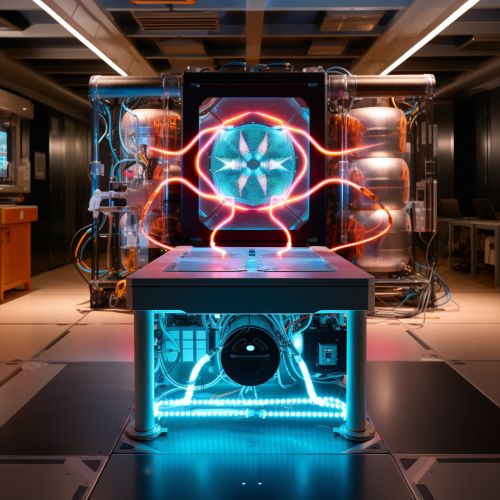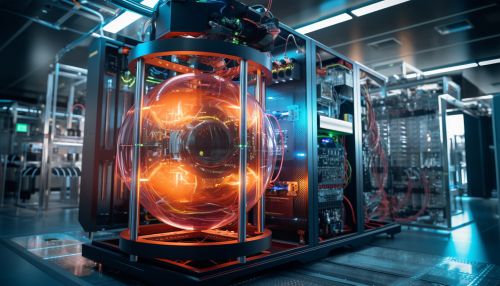Quantum Computing with Topological States of Matter
Introduction
Quantum computing is a rapidly evolving field that leverages the principles of quantum mechanics to perform computations. One of the promising approaches to quantum computing is the use of topological states of matter, which are unique quantum states that are robust against local perturbations. This approach is based on the concept of quantum entanglement and superposition, and utilizes anyons, a type of quasi-particle that exists only in two dimensions.


Topological States of Matter
Topological states of matter are a unique class of quantum states that are characterized by topological order. This order is a type of long-range quantum entanglement that is robust against local perturbations, making it ideal for quantum computing applications. The most well-known example of a topological state of matter is the quantum Hall state, which exhibits a quantized Hall conductance that is robust against changes in material parameters.
Anyons and Topological Quantum Computing
In the context of topological quantum computing, anyons play a crucial role. Anyons are a type of quasi-particle that exist only in two dimensions and exhibit unique statistical properties. Unlike fermions and bosons, which are the two types of particles in three dimensions, anyons can have any statistical phase between 0 and 2π. This unique property of anyons is the basis for topological quantum computing.
Topological Quantum Error Correction
One of the major challenges in quantum computing is the susceptibility of quantum states to errors due to decoherence and noise. Topological quantum error correction is a promising approach to protect quantum information from such errors. This approach utilizes the topological properties of certain quantum states to encode quantum information in a way that is robust against local errors.
Current Research and Future Prospects
Research in topological quantum computing is currently focused on finding suitable materials that exhibit topological order and can host anyons. Several materials, such as topological insulators and superconductors, are currently under investigation. The future prospects of topological quantum computing are promising, with the potential to revolutionize the field of quantum computing by providing robust and scalable quantum computers.
